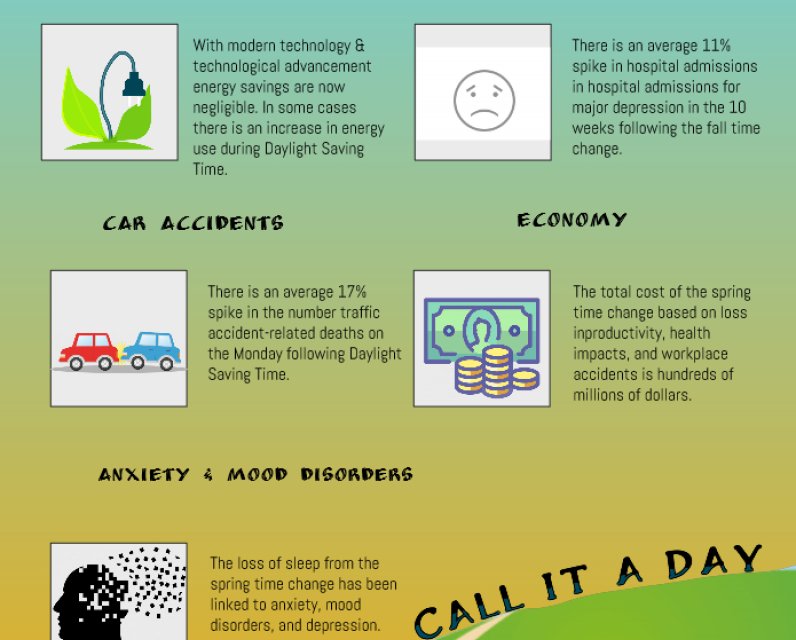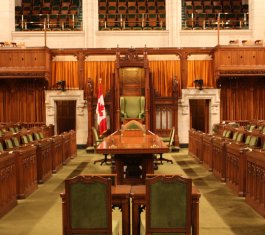Campaign Letter
Letter introducing issues with biannual time change to Nepean MPP candidates & Ontario political leaders

Dear Sir and Madams:
Ontario has been observing Daylight Saving Time ("DST") in Ontario for many decades, which is legislated by the Time Act, R.S.O. 1990, Chapter T.9. A plethora of research has come out in the last few years showing just how negatively both the spring and fall time change impact individuals' mental health; physical health; and, by extension, the province's economy.
Jurisdictions further away from the equator started observing DST, most notably during World War II, in an effort to save electricity and power. However, recent reports from when extended daylight saving time started in 2007 have shown that any energy and power savings are negligible or even costs more energy and power, depending on the jurisdiction.
Recent research has also shown that the time change in the fall, when people get an extra hour sleep, actually has an adverse affect on mental health because of the sudden loss of light at the end of the day. 2-3% of Canadians are affected by SAD (Seasonal Affective Disorder), making up for about 10% of all severe depression cases in Canada each year. A further 15% are affected by winter blues. The connection of a loss of light, causing a deficiency of vitamin D in adults, causes a surge of major depressive episodes in the month following the fall time change. The surge drops off approximately 10 weeks after that.
It has been long reported that the spring time change has adverse health impacts on people, due to sleepiness as a result of the loss of that hour. Those health impacts include an increase in workplace accidents, deadly car accidents, and heart attacks. There is also research that shows it takes a minimum of three weeks to fully adjust to the time change. All of these issues had an estimated $434 million cost in 2013 in the US alone.
Other regions are taking the adverse effects of the biannual time change seriously. Florida has recently voted in favour of adopting permanent summer time. The EU; New York; California; Texas; Illinois; Alberta; British Columbia; Tennessee; and, Michigan are currently seriously debating or starting to consider moving away from the biannual time change and adopting either permanent daylight saving time or standard time. Queensland (Australia); Hawaii; Saskatchewan; and, Arizona do not observe the biannual time change. There is no reason for Ontario to not also consider doing the same thing.
The benefits of eliminating the observation of a biannual time change in Ontario are immense. Please commit to this change to show your commitment to the personal health of Ontario's residents and improving the province's economy.
Sincerely,
Caroline Mendoza







































































































































